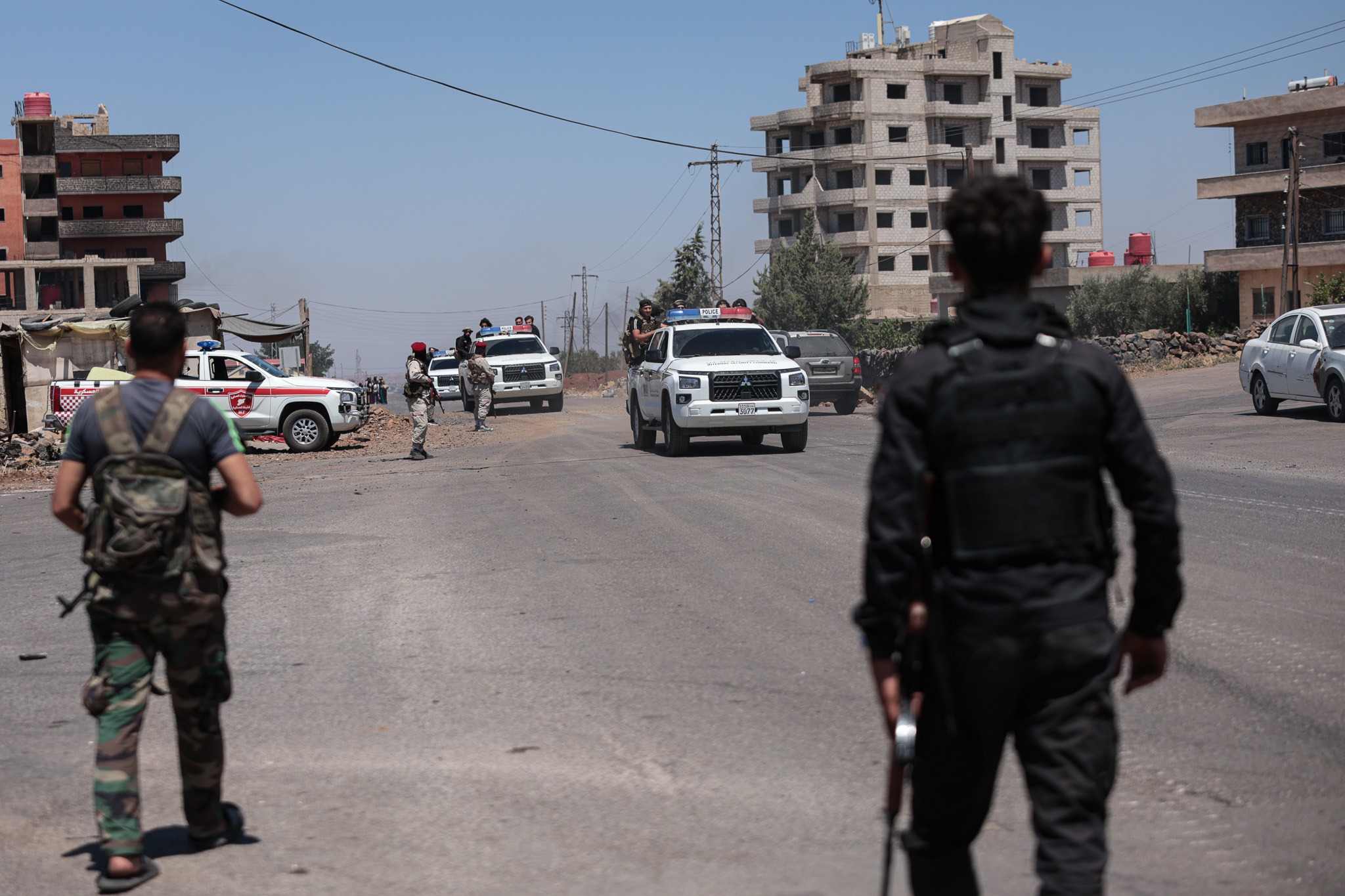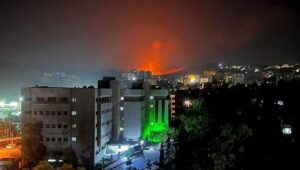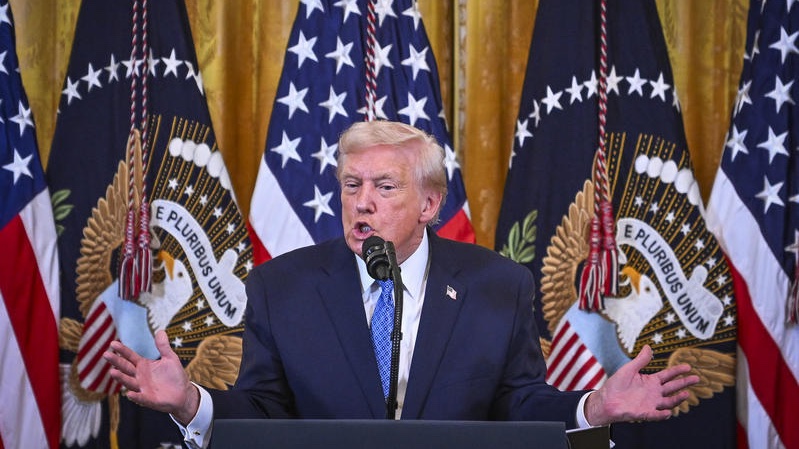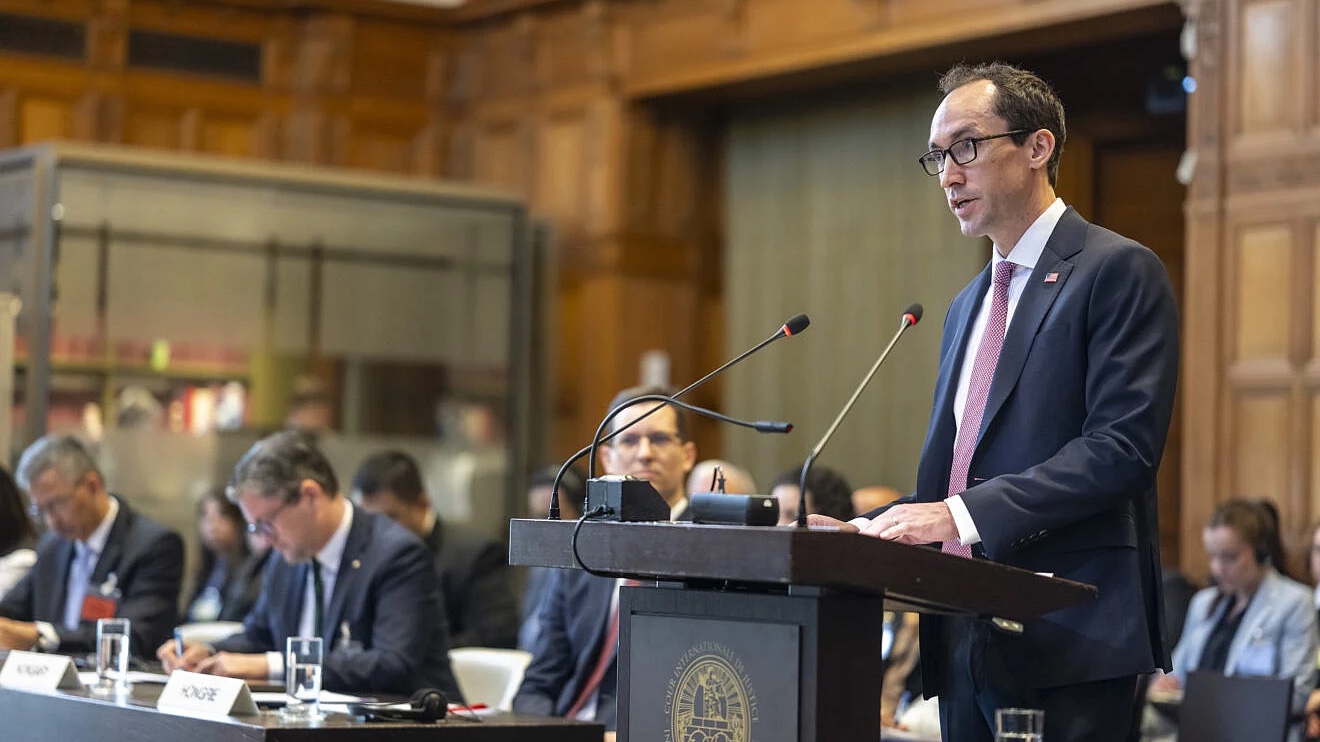(JNS) The attempted massacre by the new Syrian regime of the Druze minority in the southern Sweida province, and clashes between the Druze and local government-backed Bedouin tribes, which have left over a thousand dead and displaced more than 128,000 people according to UN estimates, have forced a direct Israeli military intervention and revealed a deep strategic dilemma for Jerusalem.
Israeli airstrikes halted the atrocities committed by jihadist forces under the auspices of the Syrian army, and Israel Defense Forces reportedly provided humanitarian aid to the besieged Druze after a ceasefire took hold on Sunday.
Last week, the crisis escalated dramatically, when forces loyal to Syrian leader Ahmad al-Sharaa entered Sweida city and began indiscriminately murdering the Druze population, accompanied by the release of videos showing humiliating ceremonies.
The spiritual leader of Israel’s Druze community, Sheikh Mowafaq Tarif, made a direct appeal to US President Donald Trump, stating last Sunday, “We are witnessing horrific scenes of genocide in a vicious attack on innocent Druze civilians. The United States, as the leader of the free world, is allowing this to happen and turning a blind eye. It is unacceptable for it to ignore these heinous acts, which aim to impose authoritarian power and trample all civil rights, while committing crimes against humanity and genocide.” He said “extremist militias” were behind the acts.
Meir Ben-Shabbat, former Israeli national security adviser and head of the Misgav Institute for National Security and Zionist Strategy, told JNS on Sunday, “The events in Syria provided the whole world with an opportunity to see again what Jolani’s [Ahmed al-Sharaa] ‘base’ looks like.”
Ben-Shabbat, who also headed Israel’s National Security Council, added, “Why is this important? Because even those who believe he has abandoned the path of jihad and chosen the path of statesmanship now understand that Jolani cannot persist for long in a direction that is 180 degrees opposite to his ‘base.’”
It is “difficult to assume” that the jihadists surrounding al-Shara’a “have abandoned the vision of establishing an extremist Sunni religious state in the state of A-Sham [greater Syria],” he continued. “It is more likely that they have come to the realization that it is worthwhile to let Jolani play the West’s game to establish his rule and begin to rehabilitate Syria, and then return to the original path from a position of strength. It is hard to estimate how and when this will happen, but it is a scenario that must be before the eyes of anyone dealing with the option of political arrangements with Syria.”
Ben-Shabbat clarified that “this does not mean that Israel should give up on the possibility of political arrangements while exploiting Jolani’s current weakness, but it requires calibrating expectations and ensuring that we do not give up on other interests just for the chance of an agreement.”
From a security perspective, Ben-Shabbat stated that Israel’s intervention had been a strategic necessity to secure its border.
“The takeover of this region by extremist Sunni elements could allow the establishment of hostile elements and jihadist terrorists near the border and across the entire southern Syrian Golan. Israel’s intervention was intended to send a clear message: there will be no change in the balance of power in the southern Syria region without Israel’s consent, nor will there be a deployment of capabilities that could threaten Israel within a distance determined by it (in other words: defining a demilitarized zone).”
Ben-Shabbat also placed the events in a wider regional context, identifying Turkey and Qatar as the leaders of the Muslim Brotherhood axis who are seeking to fill the vacuum left by the collapse of the Iranian-led Shi’ite axis. He noted that Israel’s action to protect the Druze also serves to counter this new threat, since Israel prefers that the Druze control this strategic area “and not Jolani’s forces that are supported by Turkey.”
Asked if Israel will be able to get the Trump administration to view the situation in Syria from its perspective, Ben-Shabbat answered in the affirmative, adding, “I am confident the United States will give the Israeli stance the proper weight. The wounds of Oct. 7 are still bleeding, and ultimately, these are threats that are on our border, and not at a distance of thousands of miles.”
Professor Eyal Zisser, vice rector of Tel Aviv University and a chair of contemporary history of the Middle East, offered a different interpretation of events.
“I do not think he [al-Sharaa] revealed any particular character; this was an event that got out of control,” Zisser told JNS. “But it is clear, firstly, that he does not have full control in the territory over all elements, including elements that are supposedly under his authority. Secondly, this is a regime with an Islamic conception according to which minorities are not really welcome—incidentally, this is exactly the case in Saudi Arabia or the Emirates, where non-Sunni Muslim minorities are not welcome.”
He added, “The Israeli intervention complicated the situation, but still, the interest of Israel and also of the Syrian regime, and certainly of the United States, is stability—and for this, it is necessary to cooperate, even if tactically, and to talk.”
Zisser also disagreed with Ben-Shabbat that Israel would be able to bring Washington around to its point of view on Syria.
The Druze in Sweida and southern Syria “do not want Israeli patronage—none of them asked for such patronage, and they emphasize that they see themselves as Syrian citizens, because they know that there is no future for Israeli involvement in Syria, and that it will only entangle Israel in the internal conflicts in Syria,” he said. “Sweida is more than a hundred kilometers from the border, so what’s the idea, that we will conquer all of southern Syria, where there are a million Syrian Sunni Arabs, and risk a guerrilla war?”
He concluded that a diplomatic resolution, rather than a military one, is the most probable outcome. “It is to be assumed that with American mediation, matters will calm down until the next time,” Zisser stated.
Want more news from Israel?
Click Here to sign up for our FREE daily email updates














